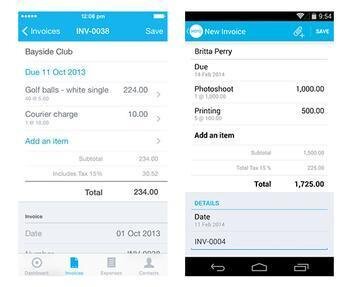Cash Basis vs Accrual Basis Accounting What’s the Difference?

Cash basis wasn’t giving them a clear picture of the overall performance of the company and cash flow was a big issue for them. If any of these questions are yes, accrual basis accounting might be best for your company. Investors and external parties need more complex reporting that shows how the business is performing.
Accounts payable is the total money that you owe to your vendors when you have bought supplies from them on credit and haven’t paid them yet. It is a liability account, because it indicates a payment that you have to make to a seller. When you start out in business, you may not think which accounting method to use is an important decision. But, as shown here, it has so many critical consequences, you cannot ignore the question and need to think it through carefully. If your business is a corporation (other than an S corp) that averages more than $25 million in gross receipts over the last 3 years, the IRS requires you to use the accrual method. This example displays how the appearance of income stream and cash flow can be affected by the accounting process that is used.
Accrual-basis and cash-basis accounting each have their advantages and drawbacks. There are logical reasons, such as company size and budget, that might lead a business to prefer one system over the other. If you are unsure which approach is best for your business, it may be a good idea to seek professional advice to determine if your company should use cash or accrual accounting.
If you’re a large business buying and selling on credit, and you record accounts receivable and accounts payable, the accrual method is probably the wiser choice. In cash accounting, the exchange of cash decides when revenue and expenses are recognized. Here, a business records revenue when cash is received, and expenses when cash is paid. Another difference between the two methods is how they can impact business taxes at the end of the year.
Small businesses that are expected to grow may also want to start with accrual basis accounting so they’re prepared for future accounting needs. Unlike the cash method, the accrual method records revenue when a product or service is delivered to a customer with the expectation that money will be paid in the future. Likewise, expenses for goods and services are recorded before any cash is paid out for them. GrowthForce provides detailed reporting for your business backed by bookkeeping and accounting you can trust.
What is Cash Basis Accounting?
The main difference between accrual and cash basis accounting lies in the timing of when revenue and expenses are recognized. The cash method provides an immediate recognition of revenue and expenses, while the accrual method focuses on anticipated revenue and expenses. Accrual accounting recognizes revenue and expenses based on the date your practice incurred them. Under accrual accounting, claims submitted to payers but not yet paid count as revenue.

For tax purposes, companies with over $26 million revenue in the previous 3 years must use accrual. Using the example from above, if a small business bills a client $1,000 on March 1, you would record that $1,000 as income in March’s bookkeeping—even if the funds didn’t clear your account until April 15. In other words, if you have a small stationery business that purchased paper supplies on What Is a Purchase Order & How Does It Work credit in June, but didn’t actually pay the bill until July, you would record those supplies as a July expense. For example, let’s say in January you buy 1000 units from your wholesaler then sell those units over a year. The sale you made in August is now being linked back to your wholesale purchase in January to show the full circle of your cash flow and the transactions that affect it.
However, under the accrual method, the $1,700 is recorded as an expense the day the company receives the bill. Your business might not need someone with vast experience in accounting to be in charge of your books, but cash basis won’t give you complete insight on how your business is actually performing. At Juna, we’ve transitioned numerous clients from cash to accrual accounting. If you need guidance on choosing the best method for your business, or help with the transition process, get in touch with us for a complimentary consultation at
What is Cash Basis Method of Accounting?
With Decimal handling daily reconciliations, you can understand the current state of the business without having to invest the time. Knowing it is accrual-based accounting, we can extrapolate from the above statement a clearer picture of what occurred only during the reported month. Therefore we can now say with much more certainty that Tim’s Tasty Tornado is likely a profitable one. In general, cash accounting is best for small businesses and businesses that do not carry inventory as part of their operations. Alternatively, large businesses and inventory-based businesses should opt for accrual basis accounting.
- Accrual accounting is more complex but provides a better picture of your practice’s financial position.
- Accounting software and tools like QuickBooks Live can help with either method, with virtual accountants available to help you every step of the way.
- Without looking at a cash flow statement, we can say with certainty that there is $13,400 in Tim’s account, where he started with $10,000.
- It also shows the credits and debits in the books for all sections and each user based on invoices and accruals rather than cash and instant payment.
- The main difference between cash and accrual-based accounting is the timing in which transactions are recorded.
Similarly, no bookkeeping is required for purchases from vendors on credit (i.e. accounts payable or accrued expenses) until the company pays for them. Cash-basis accounting is a simple way to easily see a company’s cash status. Because of the differences between cash and accrual accounting, one method may be more appropriate for your business than the other. Luckily, most accounting software makes it easy to track your business’s finances with both cash basis and accrual methods. Keep in mind, however, that you must decide which method you want to use and then be consistent when tracking your income and expenses.
Under the accrual method, the $5,000 is recorded as revenue as of the day the sale was made, though you may receive the money a few days, weeks, or even months later. Another disadvantage of the accrual method is that it can be more complicated to use since it’s necessary to account for items like unearned revenue and prepaid expenses. We provide critical oversight and account management to ensure that the right policies, procedures and systems are implemented and accurate financial and management reports are produced. We help businesses run with total confidence backed by financial and management reporting they can depend on.
You can see a trend analysis because you recognize revenue and expenditures in the period in which the revenue was earned and the expenses occurred. However, startups or small businesses should ask themselves some basic questions before choosing between cash and accrual. Which method you choose is ultimately a management decision, depending on your business goals, the resources you have available, and your firm’s size and financial requirements. It’s wise to speak with an accountant and tax professional in your decision-making process. Two of the most recognizable accounts in an accrual accounting system are “Accounts Receivable” and “Accounts Payable.” Let’s take a look at those to see what makes accrual accounting different.
Can You Use Both Cash and Accrual Accounting?
You’ll need to do this if you want to claim tax deductions at the end of the year. And you’ll need one central place to add up all your income and expenses (you’ll need this info to file your taxes). In a nutshell, when you receive payment from your customers and then immediately write it down in your books, that’s cash accounting.
Accounting software and tools like QuickBooks Live can help with either method, with virtual accountants available to help you every step of the way. Having a publicly-traded company or one that may go public is another stipulation of the GAAP guidelines. Publicly traded companies have a duty to report an accurate view of their financial well-being to shareholders. However, for the most accurate and updated accounting view of your financial health, accrual accounting might be the better choice. To change accounting methods, you need to file Form 3115 to get approval from the IRS.
Before his net30 switch, we may have been able to say yes, but even then, without much certainty. For Tim, this may not be a huge issue, as he would have access to previous statements and his other financial sheets that show a complete picture. The cash-basis system is not acceptable according to the Generally Accepted Accounting Principles, or GAAP. For companies required to comply with GAAP standards, the accrual-basis method is the preferred form of accounting. Simplicity can work for individuals or very small businesses, but not as much as a company expands. Therefore, it might make sense for a small business to start with the cash-basis approach and switch when the company requires greater accountability.
With accrual accounting, businesses can more easily keep track of credit transactions using an accounts receivable system, which shows the full transaction history of each customer. An accounts payable system shows the transaction history between your company and a vendor or supplier. GAAP compliant accrual accounting is required for companies of a certain size, with certain debt covenants or that are publicly traded. The first difference between cash accounting and accrual accounting is the time when transactions are recorded (when revenue and expenses are recognized).
When To Use Cash-Basis Accounting
Many small business owners choose the cash method of accounting because it’s a simplified bookkeeping process. It’s easy to track money as it moves in and out of your bank account because there’s no need to record receivables or payables. Accrual accounting is more common than cash accounting among larger firms. Using the accrual basis helps you track what’s owed in both directions, so it gives a more complete view of your company—one that can be viewed in some accounting software dashboards.
Cash accounting, in contrast, recognizes revenue and expenses when you receive or pay them, respectively. Under cash accounting, you do not count the claims you submit to payers for reimbursement as revenue until you receive payment. In this system, you record income as it’s received and expenses as they’re paid.
Cash vs. accrual accounting: What’s best for your small business?
As our money systems and ownership structures became more complicated, we needed a more robust way of tracking it all. In the late 15th century, an Italian Friar by the name of Luca Pacioli recorded the methods used by Venetian merchants at the time. The Friar provided the first written account that introduced double-entry bookkeeping and the concepts of credits and debits. Learn the differences between cash and accrual accounting methods and see how your online bookkeeper can help you keep up with all your online accounting demands. Cash-basis accounting documents earnings when you receive them and expenses when you pay them. However, the accrual method accounts for earnings the moment they are owed to you and expenses the moment you owe them; it does not matter when your money enters or leaves your account.
Pros and Cons of Cash Accounting
We’ll explain the basics of cash accounting and accrual accounting methods, as well as the pros and cons of each so that you can make an informed decision. It’s important to note that this method does not take into account any accounts receivable or accounts payable. This is because it only applies to payments from clients—in the form of cash, cheques, credit card receipts, or gross receipts—when payment is received.


